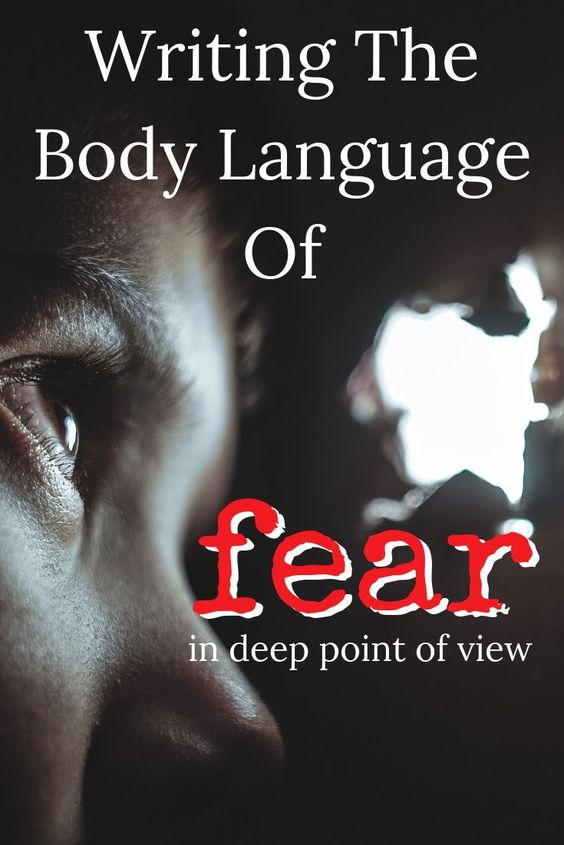
Post Traumatic Stress Disorder – PTSD – is a popular device for fiction authors. PTSD forces your characters to overcome insurmountable obstacles emotionally and mentally. Characters who are at war with themselves in addition to any external conflict just makes good fiction.
The problem is writers research symptoms and run with it. There’s so much more to PTSD than flashbacks that can add emotional layers, depth, and connection for readers.
**UPDATE** So, this is one of my more popular posts and as this has been a personal struggle for me especially over the last few months, I wanted to go back and add some details and nuance that hopefully you’ll find helpful.**

What Do Writers Get Wrong About PTSD?
Post Traumatic Stress Disorder (PTSD) has been called shell shock and historically was lumped in with ‘hysteria’ for women. You can research this mental illness, the causes, and the symptoms, (here’s a great link), but I’m more interested in helping you write it with accuracy.
Giving characters a traumatic past and an ongoing condition that hinders their ability to move on is great for character arc if you can pull it off. Otherwise it can come off sounding trite or melodramatic. The character struggling with PTSD is facing overwhelming odds, and any character who stands up to a bully of any kind (even when it’s a mental illness) is someone readers will cheer for.
Do more research than just symptoms. Flashbacks seem to be the most appealing aspect of writing a character with PTSD, but actual recurring flashbacks are a symptom of very severe PTSD which is absolutely debilitating in every way. Try talking to someone who struggles with this. Read blogs written by those who live with or struggle with this, or have a loved one who struggle with this. Know that the symptoms don’t encompass the whole struggle but are simply the tip of the iceberg.
What Else Is There To PTSD Other Than Flashbacks?
Yes, flashbacks can happen with PTSD, but here’s the truth about flashbacks – not everyone has them frequently or even at all. Most writers love the idea of using flashbacks, I’ll admit they’re fun to play with, but where writers often miss the mark with PTSD are all the OTHER symptoms that are debilitating and soul-crushing. Far more common are triggers which require more subtlety and art to really convey how devastating they can be.
PTSD is a filing problem – basically. Where most brains are able to process and appropriate file away a traumatic memory, for whatever reason – a particular memory or file gets left out and never gets filed away (processed). It’s kept front and center for easy access essentially rewiring the brain.

When triggered, (a smell, a place, a feeling, a person, etc.), the inner-most part of the brain (the amygdala – stay with me) sounds off like a fire alarm. When that fire alarm goes off, the rest of your brain diverts all power/energy to that alarm centre. So, once the fire alarm goes off, you’re incapable of “thinking” your way out of a situation. Instead, you’ll instinctually react in the way that’s most likely to “save you” whether it’s fight, flight, or freeze.
When PTSD rewires the brain, that fire alarm (which is useful, which is necessary) is now super super sensitive. It’s like placing a fire alarm over your toaster. You’re going to get a lot of false alarms. So, in real life we might take the battery out of the alarm, move the alarm or move the toaster. But with PTSD, because the brain can’t figure out where to file that memory, you’re kind of stuck with these constant false alarms. So most or at least a lot of energy goes into avoiding setting off that fire alarm.
This creates a near-constant hyper-vigilance that is exhausting. Utter, soul-draining, bone-weary exhaustion. To the point where you can’t think clearly – you struggle to order your thoughts or prioritize things correctly (Learn more about the mental fog here.) It’s debilitating and can very thoroughly undermine your self-confidence. Every small task or outing gets weighed against the emotional and physical and mental toll it could exact. And let me tell you, this foggy thinking makes life seem pretty f—ing hopeless pretty fast.
And while only the most severe cases have persistant flashbacks, that hyper-vigilance and exhaustion is pretty common. The mental fog caused by the hyper-vigilance or a trigger is common. The frustration and internalized shame of not being able to sort your thoughts, or trust your own thinking is intense.
Give Your PTSD Character A Coping Mechanism
Most people learn coping mechanisms to manage the symptoms of PTSD simply to function, but those mechanisms wear out, their effectiveness wanes over time, our tolerance of them grows thin. If a trigger is the fire alarm, the coping mechanims are essentially the broom being used the fan the fire alarm to prevent it from going off.
If that “broom” is the only way you can manage life at all, you’ll go to some pretty extreme lengths to prevent having it ripped from your hands. Now, that “broom” can be expressed in a wide variety or combination of ways: anger or violence, self-medicating with drugs or alcohol, workaholism, eating disorders, becoming a hermit, suicidal, etc.
At the same time, someone with PTSD is going to cover up their pain at all costs. People stare. They avoid you. They whisper. And all of that gets internalized over time. They’ll be fine in a social situation until they aren’t and they react in (what might appear to be) an irrational or erratic way, but internally they’ll have clamped down and “soldiered up” as long as possible.
Show the consequences of how ineffective that bloody broom strategy is! Show what happens when the broom is taken away (alcohol, a person, a schedule, etc.).

Show Don’t Tell A Trigger With PTSD
You want to show and not tell, right. The person struggling with these kinds of anxiety or PTSD is going to go to great lengths NOT to think about the original traumatic event. Who consciously relives traumatic events? Nobody.
More likely, the traumatic memories are shoved to the very back of the mind and actively avoided, and numbed when avoidance isn’t possible. They’ll be ruled by emotions, and unless they dig down into the WHY of their strong emotion, the PTSD may go untreated for a very long time.
Instead, show the coping mechanisms (the broom) used to control the symptoms or turn their mind off (escapism, fantasy, porn, drugs, alcohol). For me there’s a predictable progression that happens that tips me off to that fire alarm detecting smoke. I feel it in my gut first, a clamping down, a tension, a tightness, and a feeling like I don’t want to be in that place. Then I start to blush, my face feels like it’s on fire. Then I start to tremble. I’ll look down and notice my hands trembling, but at times it won’t feel like I’m looking at my own hands at all. Then my last warning is profuse sweating – regardless of the environmental conditions.
Now keep in mind, that through all of these symptoms, I’ll be waving my damn broom at the fire alarm with the ferocity of a kid trying to put out a fire with their breath. I’ll be using all the grounding techniques I can think of because I’ve decided I can’t or won’t let myself leave the situation.
When PTSD is triggered you’re at war with yourself quite literally. It will seem to come out of nowhere or can build up slowly to a crashing crescendo. A moment ago you were rationally able to recognize there wasn’t any danger, but then the switch is flipped and your body is absolutely convinced you’re in mortal danger.
Know what your character’s primal goal is when they’re triggered. Is it safety? Is it survival? Is it escaping? Have them seek that out at all costs.
They could have a mantra they recite to control their thoughts. They might have a safe person, someone they trust to watch their backs in new or upsetting situations. The slow removal of their dependence on their grounding techniques or coping mechanisms is a great way to show growth.
Those who know what their triggers are will actively avoid situations that might set them off. This is a potential for conflict – force them into a situation where they’re uncomfortable, where they feel threatened or unsafe. Spring it on them. Put them in new situations. I wasn’t aware that exercise fatigue mimicked my PTSD symptoms, so I was triggered by a jerk at the gym and couldn’t feel it coming on because I was in the middle of a workout. The times when you’re triggered without warning are the worst. Being blindsided sets you back days, weeks, even months.

A Blindsided Character Could Be An All-Is-Lost Moment
Being blindsided by a trigger at any point. A situation that’s been fine a thousand other times can trigger you that one day because someone new is there, because you can’t get your usual seat by the door, because someone’s wearing the cologne that your attacker wore. This is a great device to save for a pivotal conflict.
It’s like a two-by-four to the head. Show their emotional wounds bleeding all over the floor and have them keep going anyway. Show them growing stronger, trusting people again against their instincts, forgiving themselves because they couldn’t get a hold of themselves again, etc. Let the whole process be messy, two steps forward and one step back. The stories that end in a pretty bow and leaves everyone “cured” simply aren’t authentic.
Have a question you’d like to ask about writing PTSD in fiction with realism? What’s the most compelling portrayal of PTSD in fiction you’ve seen so far?
Been told you should learn Deep Point Of View? Had an editor or critique partner tell you to “go deeper” with the emotions in your fiction? Looking for a community of writers seeking to create emotional connections with readers? Join the Going Deeper With Emotions In Fiction Facebook group.

Wow! This is incredibly timely for me! A main character in my WIP is suffering from this due to something that happened earlier in the series. Thank you for taking the time to write it. It’s given me some great things to think about.
Trying again – my first comment vanished into the ether!
THANK YOU for taking the time to write this. It’s incredibly timely for me — a main character in my WIP is suffering from PTSD due to something that happened earlier in the series. Your post is very insightful and has given me a lot to think about. Thanks again!
Hi Dani, glad this post was helpful. It’s always a great idea to talk to someone who’s lived what you’re putting your character through as close as you can.
Thank you, Lisa, this is helpful. Though I hadn’t thought of my protagonist as suffering from PTSD. She was badly treated as a child and then shut in a cupboard. Now when she is under pressure she shuts herself in a cupboard. This seems very likely to me. If something bad is going to happen, do it to yourself before someone else does. But is this just me and would other people find this understandable behaviour?
Yes, I have had some bad experiences and my reaction is to start crying before someone else makes me.
Hi Sylvia!
I’m going to start by reminding everyone here that I’m not a psychologist. It does seem plausible that anyone who’s been forced to do something against their will and suffered a trauma because of it (emotional or physical) would seek control so that never happens again. I’m not sure about locking themselves in a closet – sounds more like a self-punishment kind of thing. Not saying I wouldn’t believe it, but you’d have to convince me (as the reader) that it was a reasonable reaction to your character.
Thank you, Lisa.
This is what I thought just because it is logical to me doesn’t mean my readers will see it that way. It is a form of self-punishment. If the protagonist thought it through it would go like this. “I have been wicked therefore I need to be punished. The form of punishment I have learned in my childhood it locking myself in a cupboard, therefore, that is what I must do.” The ‘wickedness’ would also relate to her childhood, something she has been told it wrong but probably isn’t very bad!
Needs a rethink.
You may also want to investigate DID as being locked in a cupboard is more than simple trauma. I could see where personalities could be formed and the younger one, who doesn’t think thru things as much, could automatically go back into a cupboard as a “safe” place. I could see where a small closed in space could become a safe space for an abused child to return to esp if there was other abuse i.e. spousal abuse also going on. I could see a child not abused hiding in a closet (as frequently happens) when triggered – it’s not uncommon for survivors to sleep in closets. As an adult, I’m not sure one could actually fit in a cup oars, a reality to consider, but a closet could function the same but be less “on the nose.” Repeating childhood trauma when triggered is not out of the realm of possibility however a small space feels more like a safe space, as opposed to a cage, when choosing a trauma for a child to endure. It depends in the degree of trauma and symptomology you want to create as she becomes an adult. Remember there is also acute trauma syndrome for a new trauma as an adult. I didn’t look at the date so this may be years later. Thanks for this book. Although I am a survivor and writing a character with PTSD, it’s not always so easy to see symptoms that could occur beyond your own reality and I am not trying to do an autobiography. The protagonist is not me. This will help. Merci.
This is such great information. PTSD is something I think a lot of writers like to use as it seems “easy” because it’s a well-known condition – but writing it with authenticity and respect is not easy at all. Thank you for sharing.
This was actually really helpful. Even though I know a lot about PTSD this just made everything so much clearer especially for writing about it. I think the most gripping book I know where the main character struggles with PTSD is Hunger Games. I find it very emotional, the way Katniss struggle towards the end.
Glad it was helpful! I’ve only read the first book in that series. I’ll have to keep reading! lol Thanks for the recommedation.
Thank you for this great content. But in the book I’m trying to write, I don’t want to use the POV of the person that PTSD(Person A-guy). I want to use another person’s POV(Person B-girl). Person B hates person A because he’s always so rude, weird and angry. Person B doesn’t know Person A has PTSD. Person A believes that a guy shouldn’t show sign of weakness but Person B gets him triggered without her knowledge. I want to write a scene where they have to work together on a school project but I don’t know how to portray Person A. Please, can you help me with that? Also, is it normal for someone with PTSD to joke around with his friends or are people with PTSD always close off no matter where they are?
How old is person A? You mentioned a school project.
Of course people with PTSD can laugh and joke and have fun. What they’ll do is avoid a known trigger (person or place or situation). Lots of situations and people are safe. Lots of people with PTSD self-medicate so they can have fun even in situations that are stressful. Being triggered is exhausting (mentally, physically, emotionally) and can knock you back for days — it’s avoided at all costs. (assuming person A hasn’t sought counselling or any other kind of help).
thank you for this amazing article. I was just wondering if you could think of some possible triggers for characters. I know that triggers can be even small things (you mentioned someone wearing the same cologne as the attacker) but I don’t want to make my characters trigger so small that it seems inaccurate, or something that I force to happen in the book that’s obviously planned out by me, like the victim’s attacker showing up. The character in my book suffered from abuse as a child and now suffers from PTSD. Can you tell me or give me any sources that list common triggers for victims of child abuse?
You want to create a collection of triggers that together create an impression for readers. Are they hypervigilant to having a man stand too near them – and this happens everywhere – at the grocery story, at the bank, at a martial arts class, in a crowded hallway, etc. The character can’t see any visible threat, but they can’t escape this overwhelming need to run away or fight. Fighting might look like getting prickly, unapproachable, short-tempered or testy, or even salty. Maybe the response is learned compliance – they say yes to everything in those situation even if they really don’t want to say yes. Maybe they apologize for everything — take responsibility for everything. There are lots of first-person account blogs out there where people share their particular symptoms and triggers. Quora is a good source as well. Hope that helps.
I have PTSD and this is very accurate.
I have had active PTSD for forty years, and you’re the first person who has described what I go through and how I use coping mechanisms. I have no flashbacks because I’ve buried the reason for the PTSD so deep that even I don’t know what created it.
My main way of coping was my husband. I always felt safe when I was with him. When he passed away two years ago, I had to avoid anything that triggered the panic. Any situation where I feel trapped brings on the anxiety. For instance, a traffic jam is a trigger, so I don’t drive on busy freeways for fear that I’ll be stuck in traffic if there’s an accident or other delay.
The hardest part is knowing that the danger isn’t real, but no matter how much I tell myself that, my body kicks into panic mode. In a worst case my heart begins to race, I gasp for air, I desperately need to escape, but don’t know what from, and my stomach and bowels may also react to the stress.
I’ve overcome some of the triggers. Until recently, just being stopped by a red light or at a railroad crossing was impossible for me to face, and I would figure out ways to get where I was going without having to encounter them. This meant driving as much as a mile out of my way to get to the grocery store or post office.
I know people think of military or police when they think of PTSD, but mine goes back to my extremely stressful childhood. As I said, my active PTSD has been forty years, but some incidents lead me to believe that it goes back much further. I have no memory of particular details of abuse, but I do remember coming home from first grade to an empty house and searching for my mother’s body because I was sure that my alcoholic father had killed her.
So if you’re writing about PTSD, remember that it is a multifaceted disorder/mental illness that affects a lot more people than we realize and in ways even those of us who have it don’t understand.
Glad you found it authentic. Hoping more writers will try and capture it authentically so more people are aware of the realities of living with this. Stay safe. I have had years of it being in remission, and years of it being really bad. Therapy helps. Be kind to yourself. So, you went a mile out of the way, you still went. Kuddos.
This reminds me of Iron Man3, though the director pulled it off with Robert Dawney Jr.(being an excellent actor that he is), again as you rightly mentioned and as has been the tendency of the moviemakers, they use those symptoms to enable the character to accomplish superhuman achievements. I wish there are movies that portrayed those characters in an authentic manner so that people could empathize with them.
John Gatesby recently posted…Do I Have Mast Cell Activation Syndrome (MCAS)?
Hi,
Firstly, thank you for this! It’s really helpful.
I have a question, I’m writing a book with my MC having PTSD, and was wondering; if a character is avoiding places, people, or things that trigger, what if they don’t know it’s a trigger?
My MC’s husband was killed before her eyes, and her husbands best friend was there to help her, now a few years later (they hadn’t seen each other since) would it make sense that she reacts pleased and happy to see him, but about an hour later, gets triggered?
I suppose that’s possible. Though, being reminded of a traumatic episode is still troubling without the flashback.
hi! I’m someone with PTSD and my character is an 18-year-old girl who struggles with drugs, she uses drugs because she had to cope with a school shooting that took place when she was a sophomore. apart from drug use, this is something that happened to me and I could never find the right words to express my fear and trauma. this article really helped develop my character a little more, thank you so much!
Glad it was helpful.
Great post, Lisa! I am a psychologist, and I’m glad you included other symptoms of PTSD beyond flashbacks. Some people seem to think that flashbacks are only a movie in your head, when it could be your breath stopping and your heart pounding simply from a smell or sound. The symptom that intrigues me the most is the negative feelings and thoughts that result from PTSD, like “It was my fault”, “Nobody can be trusted”, or “Bad things always happen to me.”
Have you heard of cognitive processing therapy? It’s a therapy that I LOVE. My clients’ PTSD symptoms often disappear after 12 sessions or less. I find myself wanting every fictional character with PTSD to start CPT so that they heal quickly! Here’s a video about it if you’re interested: https://www.youtube.com/watch?v=Jqj5zDbkPxY&t=5s
Happy writing, Jen
Jennifer Lane recently posted…#IWSG Letting a Manuscript Percolate
I’ve tried several therapies. It’s a work in progress — but yes, show the full spectrum of symptoms and the journey to healing. That would be pretty novel to see someone live through this and see the other side in fiction.
Thank you very much Lisa for this article (and all the other articles you have posted.) I have found them all very helpful.
I bought your book Method Acting for Writers and found it excellent.
What do you think of writing hallucinations as part of a character’s PTSD? I’ve seen some sources say that hallucinations can be a symptom, but I want to be sure I know how to go about it tastefully.
Great article, by the way! Very informative!
I don’t know that I’ve heard of hallucinations with PTSD. I have heard of people being accused of hallucinating when in fact they’re having flashbacks or nightmares. I’m sure it’s plausible, but how commonly it happens is another question. Flashbacks can be auditory and/or visual, right – so the person who’s not had counselling or for whom this is a new symptom it might feel like they’re hallucinating (except that they’re reliving an actual memory, not something made up). I know PTSD can be comorbid with other conditions like schizophrenia (a condition which does include hallucinations) which you might look into.
Thanks for these insightful tips,. I’m currently writing a character with PTSD, and I’m struggling to write it in a realistic way. Your advice really helps.
Nadine @ Cnscenteraz recently posted…Habits That Are Making Your Mental Well-being Worse
Hello there! I’m trying to write a book, but I’m not sure about the character’s circumstances. see, he has PTSD from being abused by his father, and that still resonates with him, but he also has to overthrow the government so he can exist as himself (long story), but is that too much? I’m not super sure about it all, and I’d like to get a second opinion on it from another writer.